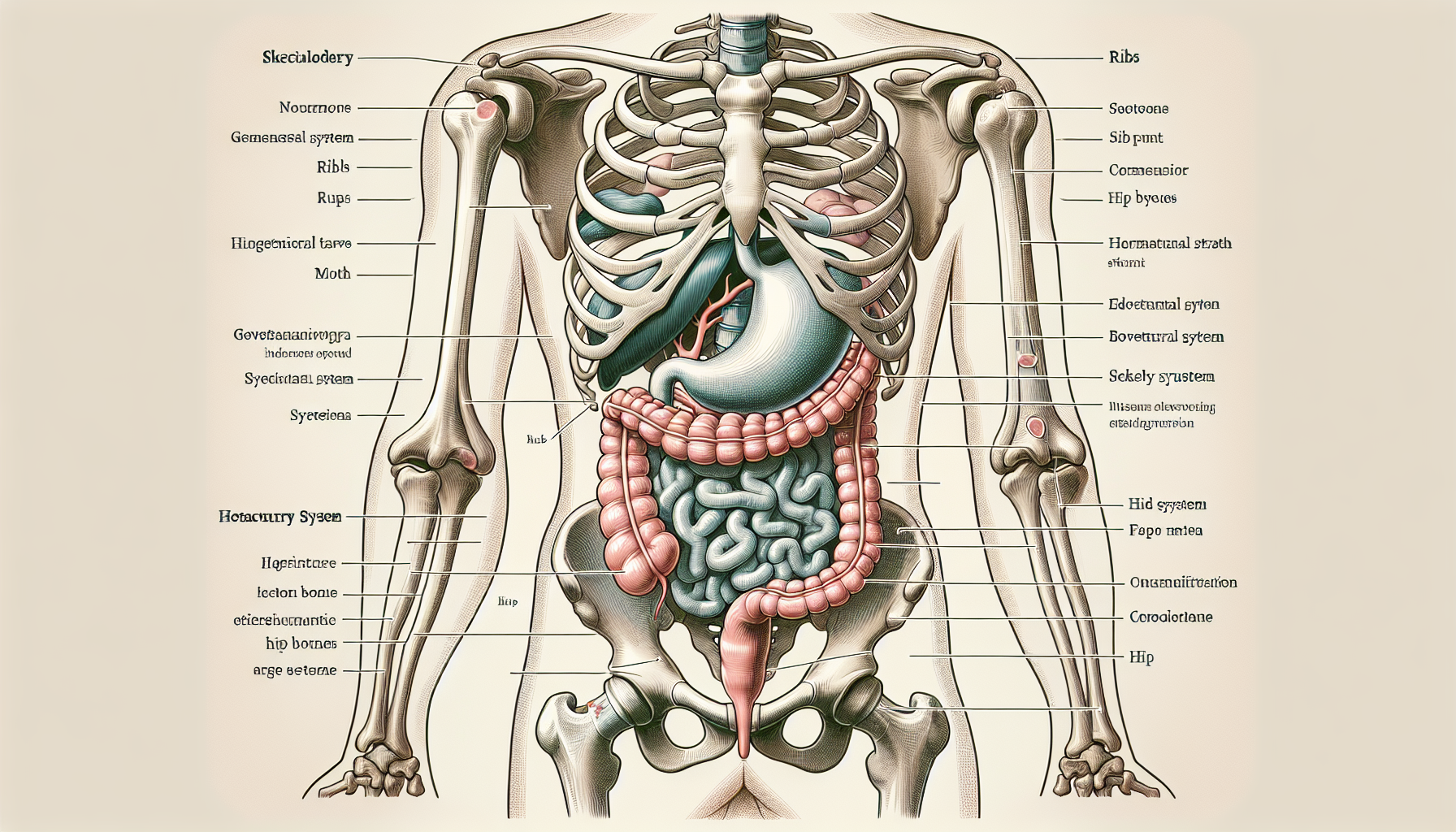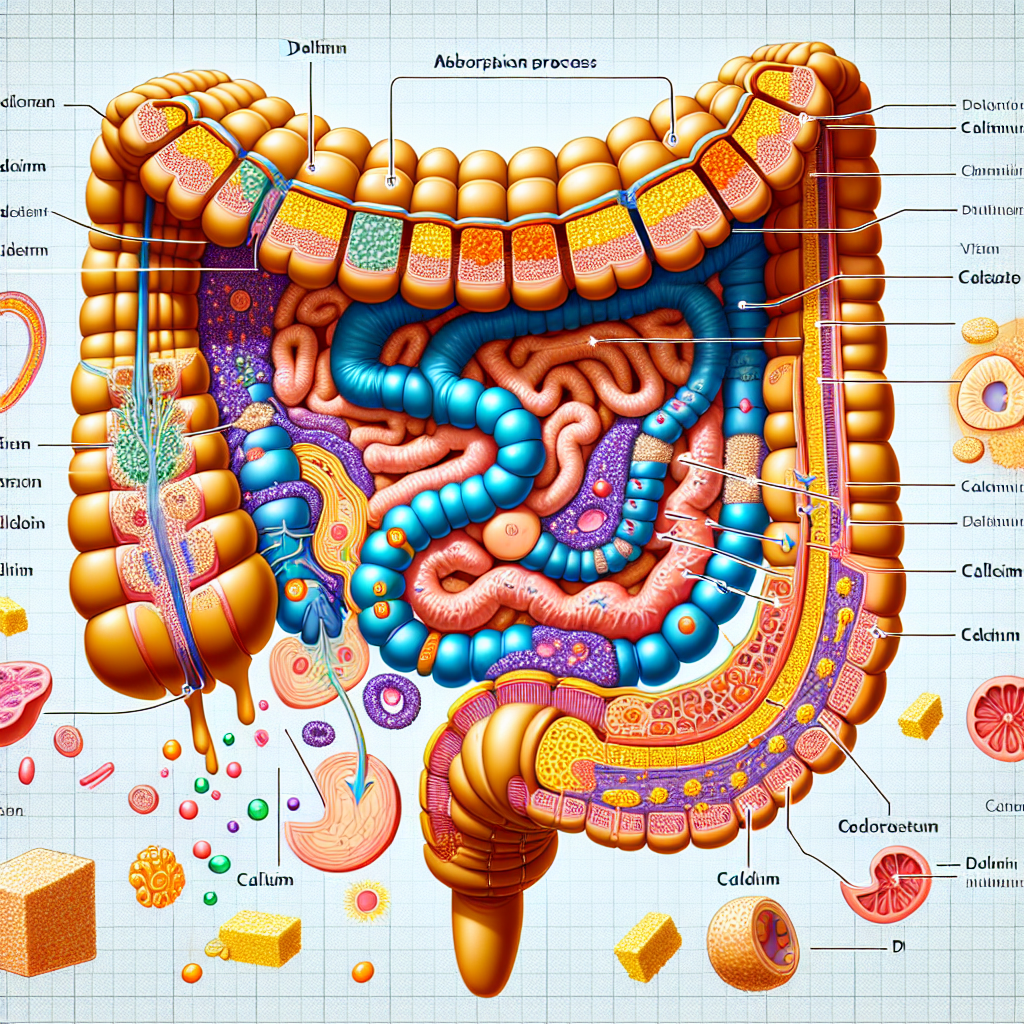The human body is an intricate network where each system influences the others in profound ways. While it’s well understood that gastrointestinal health is critical for digestion and nutrient absorption, its relationship with bone density is an area of increasing interest. This article explores the complex interplay between the gastrointestinal system and bone health, offering insights into how maintaining a healthy gut can contribute to stronger bones.
Understanding the Gastrointestinal System’s Role in Bone Health
The gastrointestinal (GI) tract is more than a digestion center; it’s a crucial player in the body’s overall health. It’s responsible for the absorption of nutrients, some of which are vital for bone formation and maintenance, such as calcium, phosphate, and vitamin D. Disruptions in the GI system can lead to malabsorption of these nutrients, which can, in turn, affect bone density.
For those looking to delve deeper into the role of gastrointestinal health, Avix Health’s Digestive Health section offers a wealth of information.
The Microbiome and Bone Density
The gut microbiome, comprising trillions of bacteria, has a surprising role in bone health. These microorganisms can influence bone density by affecting the body’s inflammatory response and calcium absorption. A healthy microbiome promotes the production of short-chain fatty acids, which have been shown to boost mineral absorption and support bone density.
Gastrointestinal Conditions and Bone Health
Certain gastrointestinal conditions, such as celiac disease, Crohn’s disease, and ulcerative colitis, can impede the absorption of bone-fortifying nutrients. This can lead to conditions like osteopenia and osteoporosis, where bones become less dense and more prone to fractures.
Nutrient Absorption: The Foundation of Bone Strength
Calcium and vitamin D are the cornerstones of bone health. Without proper absorption of these nutrients, the body can’t form or maintain strong bones. The GI system’s ability to efficiently absorb these nutrients is thus essential. Interference with absorption, due to GI disorders or an imbalanced microbiome, can lead to significant bone density issues.
For a deeper understanding of bone strength and its nutritional underpinnings, readers can explore Assessing the Impact of Vegetarianism on Bone Strength and Critical Vitamins for Bone Density and Health.
Lifestyle Factors Influencing GI and Bone Health
Diet and exercise play pivotal roles in both gastrointestinal and bone health. A diet rich in fiber supports a healthy microbiome, which in turn can support bone health. Regular exercise not only strengthens muscles and bones but also promotes a healthy digestive system.
For those interested in lifestyle modifications to improve bone density, reading about The Relationship Between Bone Density and Lifestyle Diseases can be invaluable.
External Resources on Gastrointestinal Health and Bone Density
To augment the understanding of this complex relationship, there are several high-quality, niche resources available:
- An in-depth review by the National Institutes of Health on the Gut Microbiota and Bone Health provides scientific insights into how the microbiome affects skeletal structure.
- The International Osteoporosis Foundation offers a comprehensive overview of Nutrition for Healthy Bones, outlining the importance of diet in maintaining bone density.
- The World Gastroenterology Organisation publishes guidelines on diet and the gut, which can help understand the dietary factors influencing GI health.
- A scholarly article on the Effects of Probiotics on Bone Metabolism presents emerging research on the potential of probiotics in supporting bone health.
Strategies for Optimizing Gastrointestinal and Bone Health
Maintaining a balanced diet, rich in fiber, calcium, and vitamin D, is crucial for both GI and bone health. Probiotic foods such as yogurt and fermented vegetables can support the microbiome and, by extension, bone density. Regular medical check-ups are essential to monitor and address any GI issues that could impact nutrient absorption and bone health.
Conclusion
The connection between gastrointestinal health and bone density is complex but undeniable. A healthy digestive system is essential for the proper absorption of nutrients that build and maintain strong bones. By understanding and nurturing this relationship, individuals can take proactive steps to ensure both their GI tract and skeleton remain robust throughout their lives.
By addressing gastrointestinal health, not only can we improve our digestive comfort and efficiency, but we can also lay a strong foundation for our skeletal system, ensuring mobility and strength for years to come.



